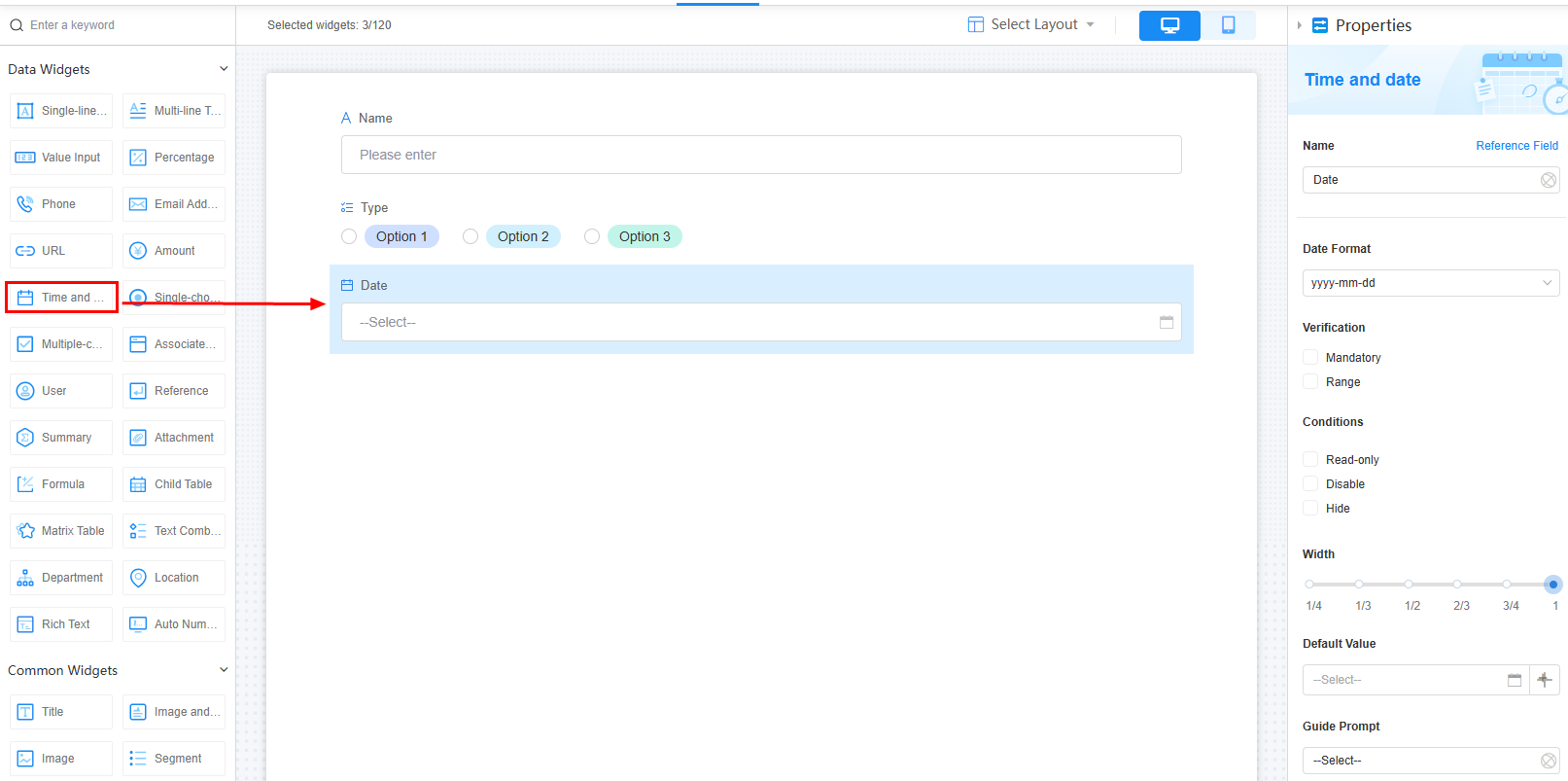Adding Widgets For a Form
Widget Categories
There are data widgets and common widgets. For details, see Table 1.
|
Widget Category |
Name |
Description |
|---|---|---|
|
Data widgets |
This widget is for short text or numbers like names, license plate numbers, postal code, addresses, or ID numbers. |
|
|
This widget is for long text. Press Enter to start a new line. Text shows in sections. Enter descriptions, notes, or feedback using this widget. |
||
|
This widget records numbers, like quantity, age, inventory, or amounts. It can handle up to 15 digits. If the number is too long, the system will add separators. For numbers over 15 digits, use the text widget. |
||
|
This widget records ratios. By default, a percent sign (%) is added to the end of the number entered. |
||
|
This widget records 11-digit mobile numbers. The platform checks mobile numbers. If one is invalid, it shows an error. |
||
|
This widget records email information. The platform checks email addresses. If one is invalid, it shows an error. Example format: ***@example.com. |
||
|
This widget records URL information. The platform checks URLs. If one is invalid, it shows an error. |
||
|
This widget records amounts. |
||
|
This widget records time information. The platform can automatically obtain the current time or you can customize the time. |
||
|
This widget lets you pick an option from a list, like choosing a gender. |
||
|
This widget lets you pick one or more options from a list, like choosing hobbies. |
||
|
This widget links forms in an application and shows them in single or multi-answer mode. For example, in a meal ordering application, the package selection field is linked to the meal options on another page, so you can pick a meal. When you export or clone an application, the form links break. You need to set them up again afterward. |
||
|
This widget gets people's information from a company contact list. You can use it to set the travel applicant, asset owner, maintenance personnel, and approver for a process form. |
||
|
This widget shows a field from a linked record on the current page. Before using this widget, ensure that the associated record widget has been used on the page. |
||
|
This widget shows the total number of fields or records in forms related to this one. To use this widget, link another form to the current form using the associated record widget. This allows you to summarize records from the linked form. |
||
|
This widget is for uploading attachments, such as certificate photos. You can upload by clicking or dragging an attachment. |
||
|
This widget calculates the fields in a record. |
||
|
This widget nests other forms within the current form as child tables. |
||
|
The widget is used to visually assess the degree of preference for something. |
||
|
This widget combines fields in the current form in a certain format. |
||
|
This widget obtains organizations. |
||
|
This widget is used to obtain the current location. It is only available on mobile devices. |
||
|
This widget is used to input text and supports text and images. |
||
|
This widget automatically generates a number in a custom format for each record. |
||
|
Common widgets |
This widget is used to display the page title. |
|
|
This is a web widget that can display rich texts. |
||
|
This widget is used to display images on pages. |
||
|
This widget is usually used to describe the following part, or divide the form into different parts to make the structure clearer. |
Adding Widgets to a Form
A form collects user data. You can create multiple forms in a no-code application. Each form is for a data type. Multiple forms form an application. When designing a form, drag a widget from the left widget area to the middle design area based on the field data type. Essentially, you can arrange widgets to create the form.

Feedback
Was this page helpful?
Provide feedbackThank you very much for your feedback. We will continue working to improve the documentation.See the reply and handling status in My Cloud VOC.
For any further questions, feel free to contact us through the chatbot.
Chatbot





